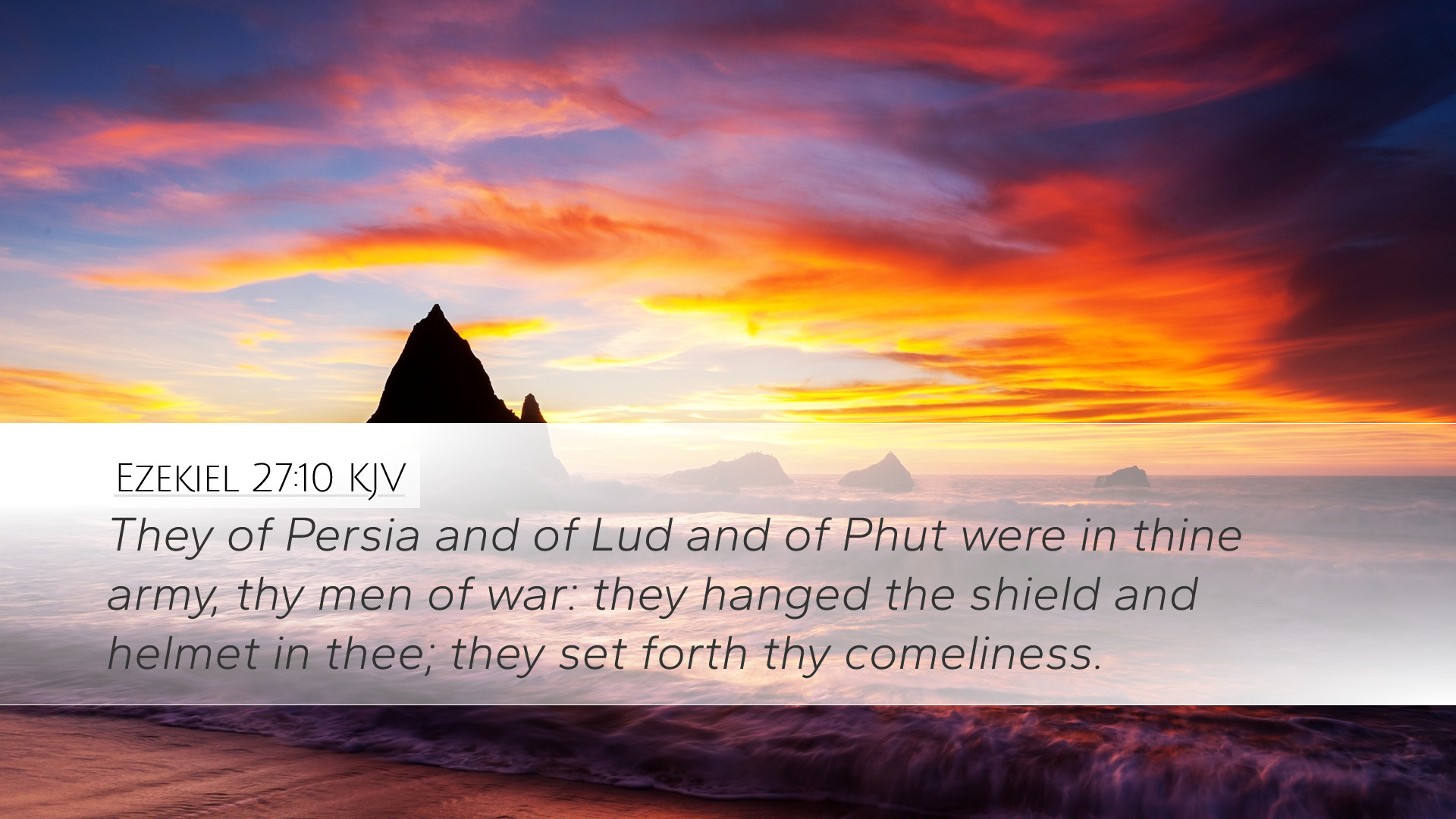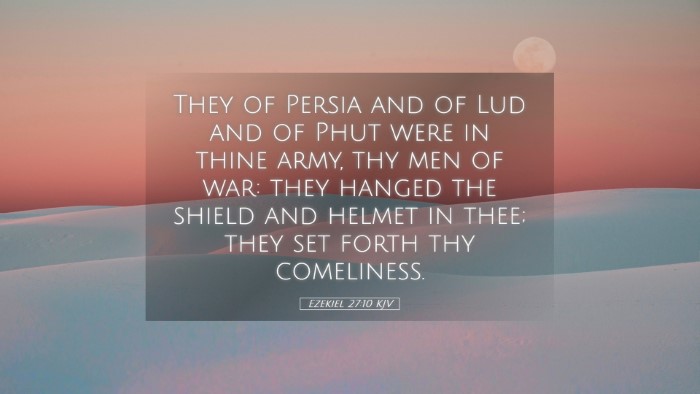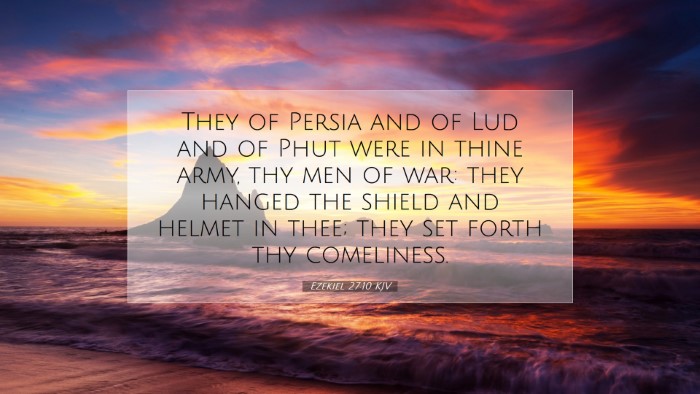Ezekiel 27:10 - Bible Commentary
Verse Reference: Ezekiel 27:10
This passage is part of a rich tapestry of prophecy within the book of Ezekiel, which serves both as a warning and a lamentation about the fate of Tyre, a prominent city known for its commerce and prosperity. Let us delve into the insights drawn from various public domain commentaries to explore the theological significance, historical context, and practical applications of this verse.
Contextual Overview
Ezekiel 27 presents a vivid description of the trading activities and luxuries of Tyre, making it a microcosm of ancient economic and sociopolitical dynamics. Verses 1-25 delve into the grandeur of the city, while verses 26-36 focus on the impending downfall. Ezekiel writes into the historical context of the Babylonian siege, chronicling the prophetic word concerning the fate of Tyre.
Analysis of Ezekiel 27:10
Text (KJV): "They of the house of Phut, and they of the land of Lud, that handled the tar, wrought thy marbles."
This verse refers to two groups involved in the maritime wealth of Tyre:
- Phut: Generally considered to refer to regions along the African continent, often linked to Libya. Some commentators connect this to the trades in weapons and military supplies.
- Lud: Often associated with areas in North Africa or possibly regions of Asia Minor. This lineage is noted for providing skilled labor, particularly in materials for construction.
Insights from Matthew Henry
Matthew Henry outlines several themes:
- The Import of Professional Skills: Henry emphasizes the importance of trade and craftsmanship as integral to Tyre’s identity, representing the synergy between various nations in commerce that leads to prosperity.
- The Divine Judgement: He highlights that despite the high status of Tyre, their fall is foreshadowed, reminding readers of the transient nature of human grandeur in the face of divine sovereignty.
Insights from Albert Barnes
Albert Barnes provides further clarity:
- Cultural Exchanges: Barnes notes how the mention of specific peoples illustrates the diversity and cultural exchanges that were hallmark traits of Tyrian society, which were crucial for its commercial success.
- Symbolism of Tar and Marble: Commenting on tar and marbles, he sees them as symbols of the essential raw materials that facilitated shipbuilding and construction, pointing to Tyre’s significant maritime power.
Insights from Adam Clarke
Adam Clarke elaborates on:
- Historical Context: Clarke offers a detailed historical reflection on the role of Phut and Lud as contributors to the mercantile activities of Tyre, amplifying the point that Tyre's destruction would echo through all nations involved.
- The Consequence of Sin: He underscores the notion that Tyre’s downfall serves as a warning to nations that indulge in pride and self-sufficiency, failing to recognize God’s sovereignty over all affairs.
Theological Reflection
This verse profoundly reflects upon the idea of divine justice and the inevitable repercussions of collective human pride and disobedience.
- Providence: The involvement of different nations in Tyre’s trade illustrates God's providential work through diverse means to accomplish His purposes.
- Critical Examination of Materialism: The focus on material wealth and commerce in Ezekiel’s prophecy invites theological reflection on contemporary attitudes toward capitalism, greed, and ethical trade.
Lessons for Pastoral Application
For pastors and church leaders, Ezekiel 27:10 serves as both a warning and a reminder:
- Be Wary of Material Temptations: Just as Tyre’s overwhelming success led to pride, communities today must stay vigilant against the seductions of materialism.
- God’s Sovereignty Over Nations: Emphasizing God’s ultimate authority reassures believers that regardless of political or economic turmoil, God’s plans persist.
- Respond to Global Community: Acknowledge the interconnectedness of the global community and foster relationships that serve to uplift and assist, combating practices of exploitation and greed.
Conclusion
In Ezekiel 27:10, we uncover a rich historical and theological tapestry that reflects the social dynamics of Tyre while prompting serious introspection regarding divine sovereignty and human pride. This verse not only speaks to the ancient world but continues to resonate with believers today, encouraging a holistic perspective on the balance between commerce, community, and faith.


